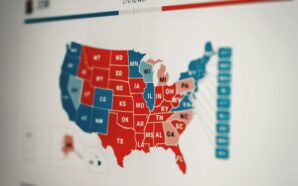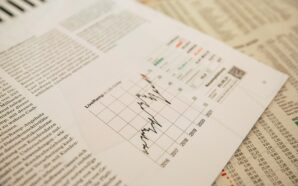It appears that robots can be soon called in to sell or purchase shares at stock markets. Or, that’s what a robotic arm ringing the closing bell at the Nasdaq Stock Exchange on Tuesday sounds like! The Universal Robot’s UR5 robot arm has now earned the distinction of becoming the first non-human to ring the closing bell, thereby honoring the launch of ROBO-STOX, a new stock index of robotics and automation technology firms. This has gone to establish that robots can now be believed to work alongside employees. Not only that, they are also affordable, and of course, easy to apply.
The specially designed arm of the UR5 robot was supported with a three-fingered gripper that rang the closing bell. Weighing not more than 40 pounds, the robot is capable of handling payloads up to 11.3 pounds. It was a 3D tablet touchscreen that enabled the robot arm to ring the bell.
Publicity Stunt
Elaborating on what prompted them to go for Universal Robots to ring the closing bell, co-founder of Robo-Stox and publisher of The Robot Report, Frank Tobe said: “We didn’t want to showcase robots that are only used in research labs. We wanted to show viable robotics technology, well-positioned for a future IPO, that is selling and being implemented in a wide range of industries today.”
Meanwhile, the ringing of bells at Nasdaq Stock Exchange by the UR5 has not gone well with a section of the people – the working class – who fear that sooner than later robots may take their pound of flesh by demanding a share of the job that they’ve been performing now. Gone are the days when robotics failed to find a lot of prominence on account of the expenditure involved. Now that robots are proving an affordable option, there are many companies who prefer them to perform vital tasks that humans do.
However, those who worry about robots coming to replace them at workplace can feel a sigh of relief, at least for the time being, as the International Federation of Robotics opines that robots are not going to pose any challenge to human workforce. Although robots lead to enhanced production and result in better wages, they’re unlikely to cause mass unemployment, according to the Federation.
Robo-Stox
In sharp contrast, employees and their unions feel that robots might come to perform 75 percent of their jobs in the near future. Nevertheless, Tobe says that it’s going to be the customers who’re likely to decide on the opportunities to be provided to the robots. For instance, he says, Bosch, a global firm, is focusing on developing technologies that will benefit people in areas like washing and cleaning. “Every manufacturer sees what consumers want and are just waiting for technology to catch up”, he observed.
Several manufacturers are now analyzing the possibility of buying robots in large numbers to work at a much faster pace and make money for them in a quick period of time. Says Tobe: “I just spoke with Apple iPhone’s China manufacturer Foxconn. They will be buying 30,000 to 50,000 robots a year to reach an eventual target of one million.”
With UR5 sending the bells ringing, it’s very much possible that robots will soon come to play a critical role in almost all major human activities, ranging from driving a car to wearing a dress.
-
President Joe Biden’s reelection strategy takes a surprising turn as the Rust Belt, not the Sun Belt, emerges as...
-
In a significant escalation of the ongoing dispute over misinformation, Brazil Supreme Court Justice Alexandre de Moraes has initiated...
-
In a significant legal development, U.S. District Judge Aileen Cannon has declined former President Donald Trump’s request to dismiss...
-
Major Collision Causing the Collapse of the Bridge The recent collapse of the Francis Scott Key Bridge in Baltimore,...
-
Donald Trump is on the brink of a crucial deadline in a business fraud case, with just a few...
-
Sylvia Gonzalez, a newly elected city council member in a small Texas community, was embroiled in controversy when she...
-
Is TikTok Getting Banned in the States? The United States House of Representatives has voted with bipartisan support to...
-
Ken Griffin, the founder and CEO of Citadel, emphasized the importance of prudence in the Federal Reserve’s strategy regarding...
-
The 2024 Election Race Continues Between Joe Biden and Donald Trump With the 2024 general election drawing closer, President...
-
Michael Saylor, a prominent figure in the world of cryptocurrency, has seen significant gains this week as the value...
-
Another Successful Moon Landing Intuitive Machines, a commercial space company, has achieved a remarkable feat by landing its Odysseus...
-
The Office for National Statistics (ONS) released official figures on Wednesday, revealing that the United Kingdom posted a record...



















